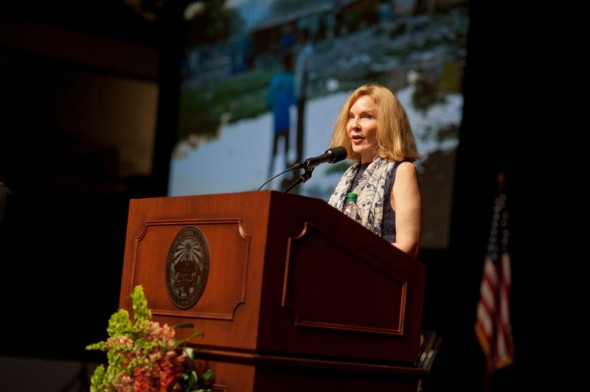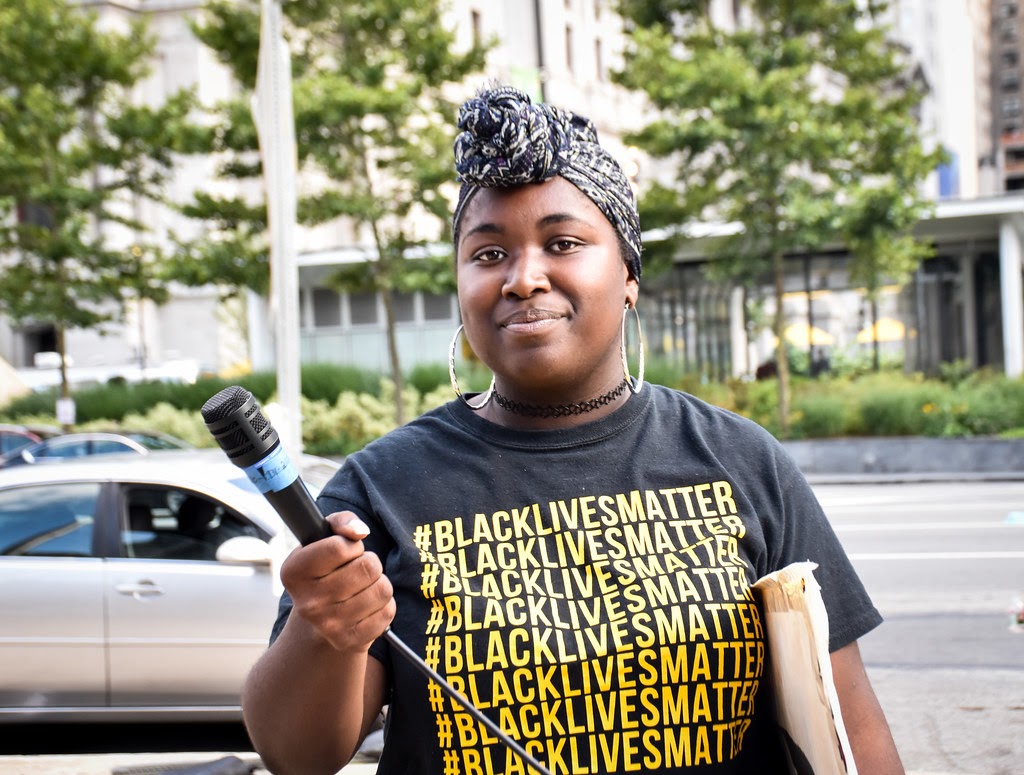During Welcome Week, as a part of this year’s freshman collective reading assignment, Pulitzer Prize winner, author and journalist Katherine Boo spoke to our new students about her book, “Behind the Beautiful Forevers.”
This non-fiction investigational piece is set in Mumbai. Amongst rusted tin shacks in the Annawadi slum, overshadowed by luxury hotels and some of India’s largest financial strongholds, Boo tells the simple story of the not so simple individuals who prove that even the bleakest surroundings can be a breeding ground of hope and promising futures.
“It’s not us versus them anymore, it’s a global complicated us… The world is a vast and complicated family for better or worse,” Boo said in her address.
On a giant screen behind Boo, a projector toggled images while she talked about exceptional individuals, those who have created enterprises and have been accepted to universities with no other resources beyond those of their surrounding squalor.
The pictures showed derelict alleyways and short excerpts of the slum-dwelling families that for three years had allowed Boo’s documenting to become a constant presence in their life. Unfortunately these kinds of pictures have somewhat lost their edge with a target audience who are regularly exposed to the pleas of philanthropic organizations in our media.
But this was by no means the common charity advertisement that for decades has desensitized us to the hopeless prospects of muddy children and mangy dogs.
Instead Boo focused on her subjects’ ambitions, their sense of ethics, their inherent principles and how those qualities alone enabled them to overcome unfathomable obstacles and achieve the unthinkable.
Boo exposed the similarities between these remarkable people and how we would like to see ourselves. She bridged the geographical, cultural and socioeconomic gap that previously enabled us to distance ourselves from any sense of responsibility. Ultimately, she instilled in us a sense of a shared future with these victims of poverty and injustice.
According to Boo, reasons for hope in Mumbai are already tangible: friends no longer discriminate between castes, women have become a major uplifting force in the slums, and despite unfathomable poverty and a lack of justice, these people do not see themselves as doomed – they are picking themselves up.
“Just because hope has previously been used as a tool and manipulated by the powerful, doesn’t mean that hope in itself is fictional…,” Boo said. “The failure of poverty lies with the powerful, not the inability of the poor.”
Leaving us with those unforgettable images and a notion of responsibility, she encouraged our incoming freshmen to enter the hopeful global age and decide for themselves what kind of developments the world will need in their shared future.
John Taylor
Environmental Studies & International Affairs ’15



